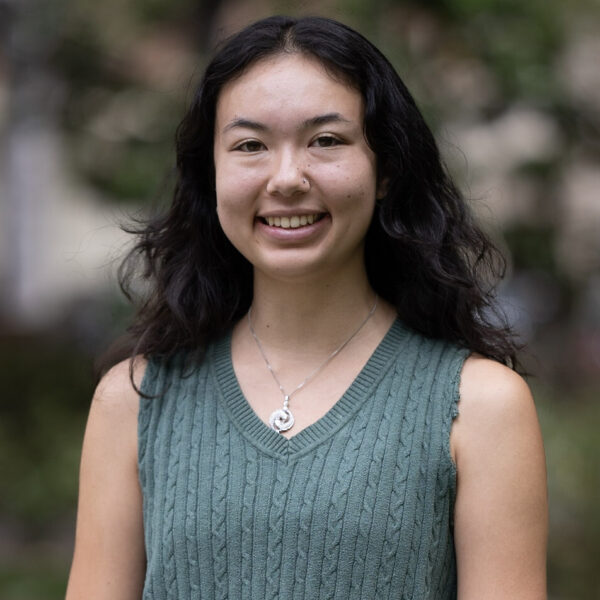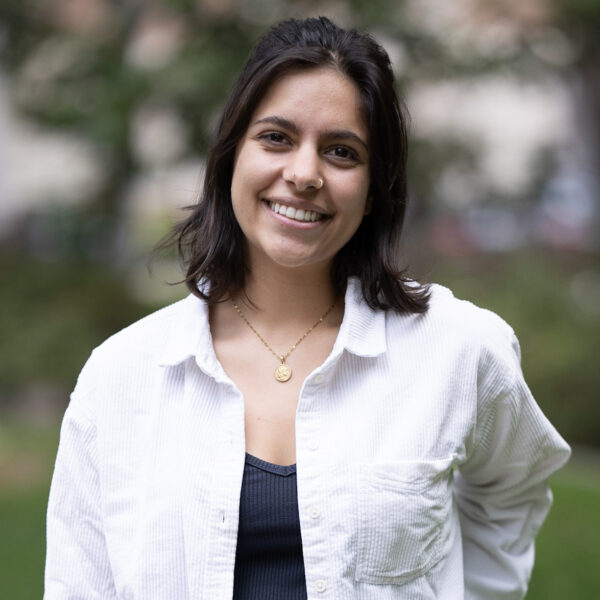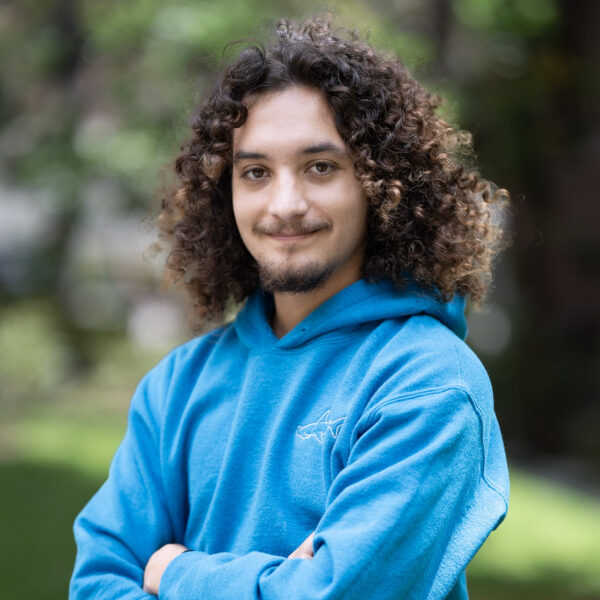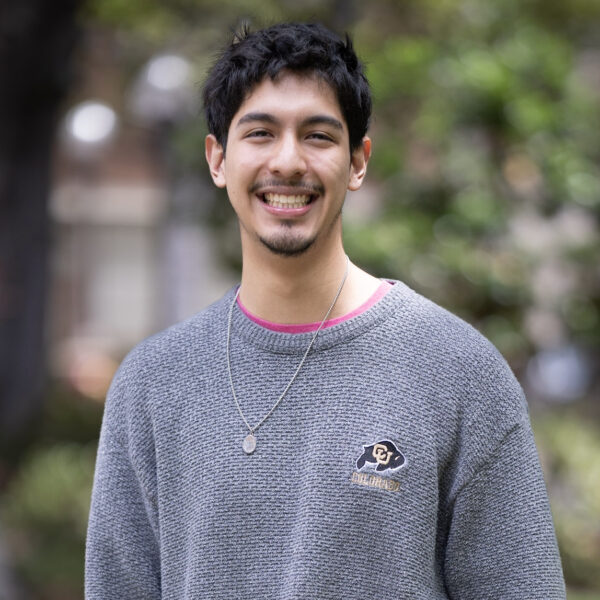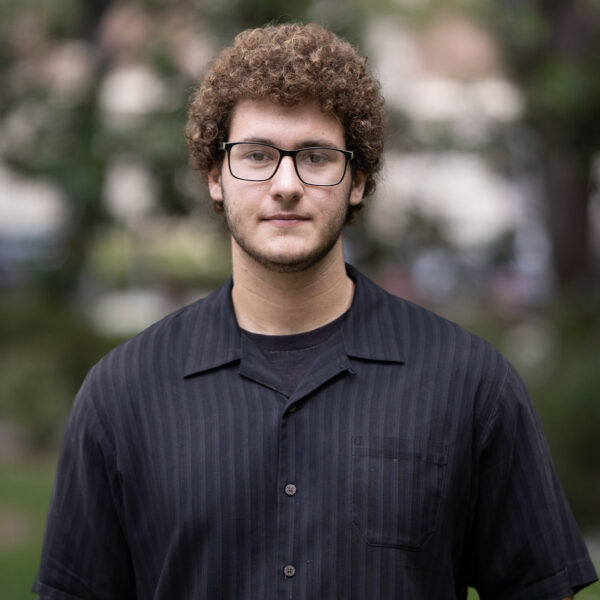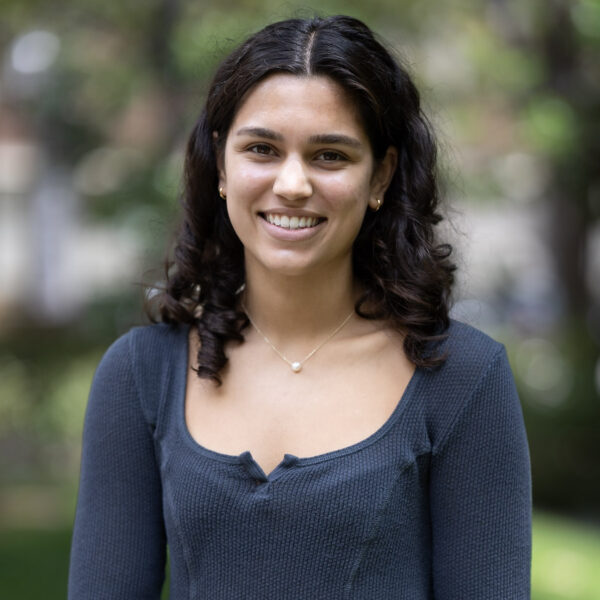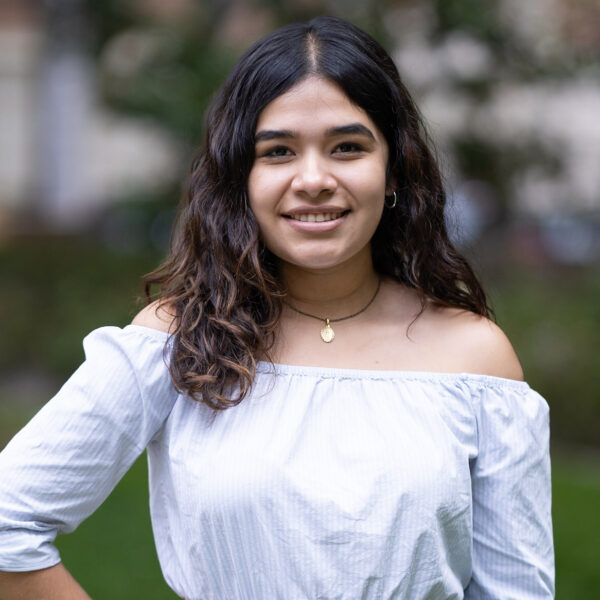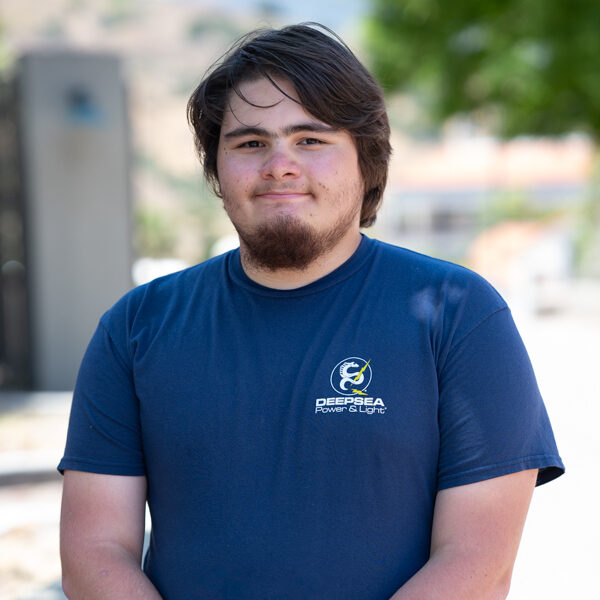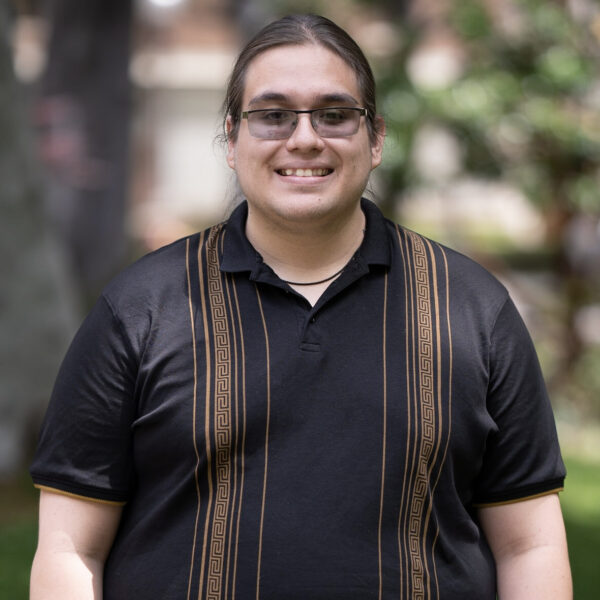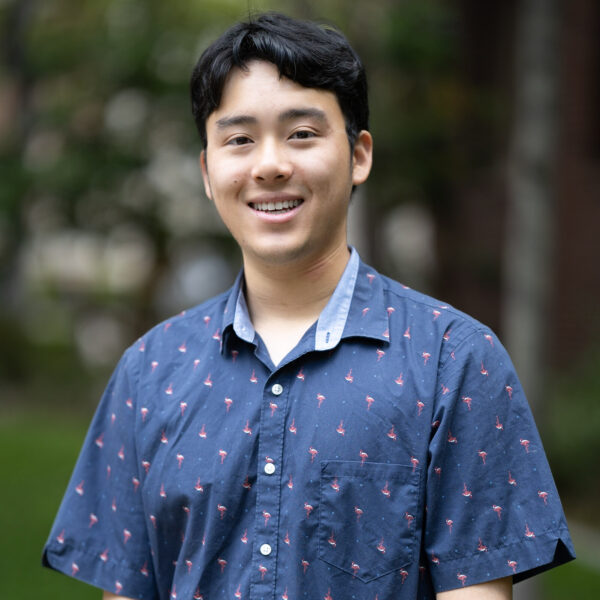Wrigley Institute REU
Real Research, Real Impact
Study the coastal ocean with some of the world’s leading scientists! Funded by the National Science Foundation, our 10-week Research Experience for Undergraduates (REU) gets you into the lab and into the field for hands-on, life-changing research experiences that prepare you for a career in science while advancing the twin causes of sustainability and the environment.
Wrigley Institute REU Program Dates: June 10–August 16, 2024*
*Later start dates may be accommodated for students who end their academic semester or quarter later.
The application period for the 2024 Wrigley Institute REU is now closed.
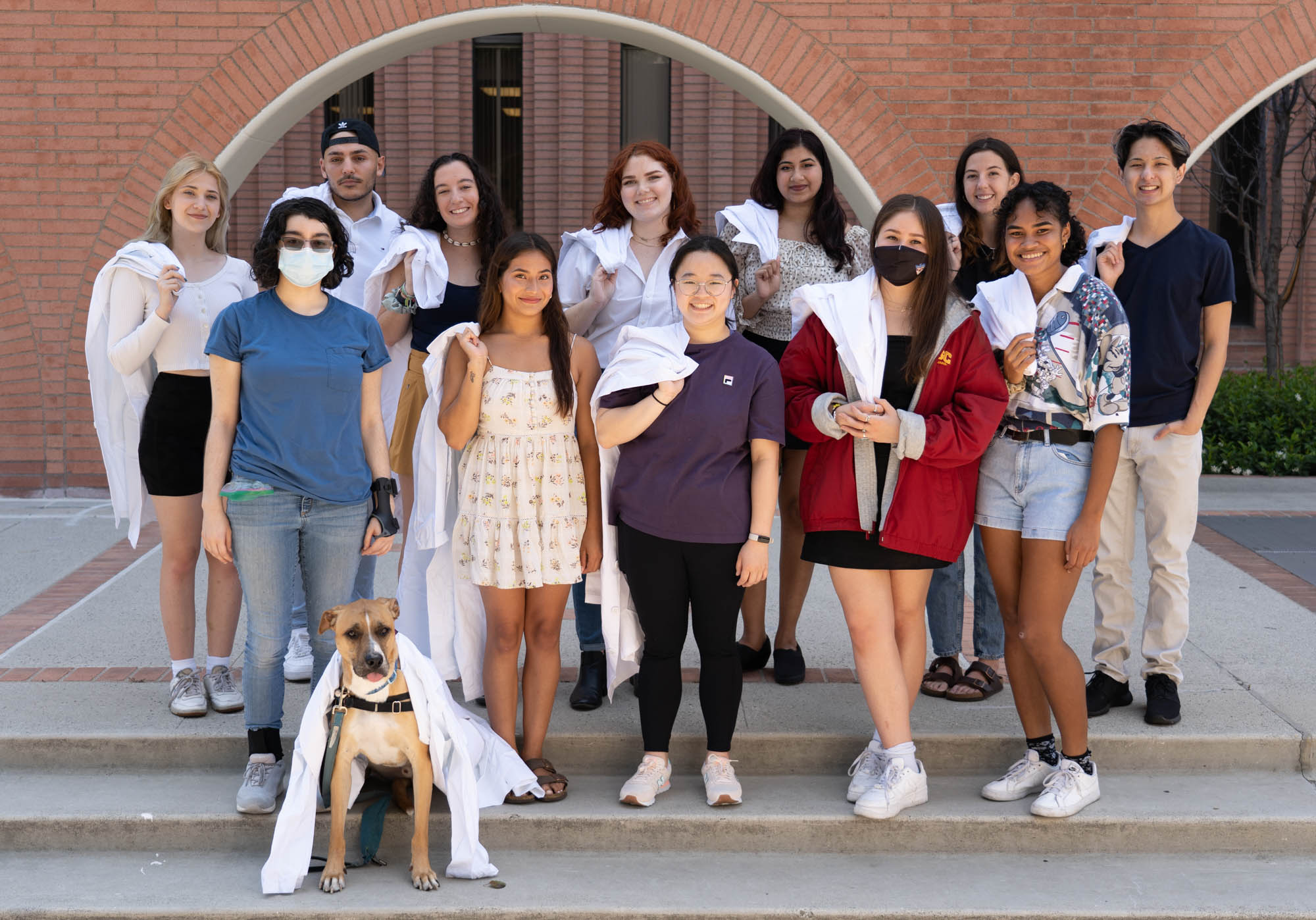
How It Works
The Wrigley Institute summer REU program supports undergraduate students to conduct guided, independent research on coastal ocean processes.
Students participate in:
- Hands-on research experience
- Laboratory and field training
- Introductory lectures and special seminars on oceanography and marine science
- Professional development workshops, networking, and science training opportunities
- Cohort-building activities
In addition to training the next generation of ocean and marine science leaders, the Wrigley Institute REU is dedicated to enhancing equity and inclusion in oceanography and marine science. We seek mentors and student participants who can contribute to this mission both during and after participation in the program.
2024 Tentative Research Topics and Labs
Research topics and labs subject to change. More research topics and labs may be added through the end of January 2024.
REU summer projects are typically designed to contribute to existing research programs or to generate preliminary data that can be used in research proposals. Students conduct independent research under the supervision of Wrigley Institute-affiliated faculty mentors, graduate students, and postdoctoral scholars. You will be asked to select your preferred research project(s) on your application. We make every effort to match students according to their preferences.
Location: University Park Campus
We are interested in testing how ocean waters, mixed with various sorts of ocean alkalization/CO2 mitigation effluent products impact ocean chemistry, ocean particles and ocean life. If you’re interested in research involving incubation experiments, of various sizes, work in and around the dock and on small boats, interested in participating in research to ’save the world’, we have the summer REU for you.
Location: Wrigley Marine Science Center
In this project we will investigate the dynamics of natural Tigriopus californicus populations and their responses to abiotic conditions, specifically sex ratio and heat tolerance. It will involve daily field sampling of three local tidepool populations of copepods which will then be analyzed in the lab for thermal tolerance and sex ratio. Additionally, general upkeep of field sensors will need to be performed periodically. Finally, data will be combined and analyzed to help uncover what abiotic factors drive changes in these populations. Results will help to understand plasticity and population dynamics of an organism living in an extremely dynamic environment. Field work will involve mildly strenuous hikes to the study site.
Drs. Feixue Fu’s and David Hutchins’ Lab
Location: University Park Campus
Topic 1: Can key phytoplankton groups recover from transient heat wave events? Devastating heat waves are increasing throughout the world ocean. This student will compare and contrast the ability of important groups of phytoplankton to survive and recover from simulated heat wave events, by making quantitative measurements of their viability following varying durations and intensities of stressful heat exposure. Results will help inform oceanographers, modelers, stakeholders and policy makers about the relative ability of key functional groups of marine primary producers to grow in a an increasingly stressful dynamic ocean temperature environment.
Topic 2: Impacts of warming on elemental use efficiencies of California phytoplankton assemblages. Preliminary data from laboratory cultures show that the efficiency with which phytoplankton use the scarce supplies of limiting nutrient elements (nitrogen, phosphorus, silicon and iron) that are available to them to fix carbon can either increase or decrease as temperatures change. However, little is known about possible analogous thermal responses of Nutrient Use Efficiencies (NUE, carbon fixed per mol of limiting nutrient per hour) of mixed natural phytoplankton communities in the ocean. The student will use natural phytoplankton assemblages collected from the San Pedro Ocean Time Series station to make the first NUE measurements in the California Current ecosystem, helping us to predict potential changes in primary productivity in the future arising from interactions between nutrient limitation, NUEs and ocean warming.
Location: University Park Campus and Wrigley Marine Science Center
Marine RNA viruses – join us in investigating how marine RNA viruses affect micro algal blooms and influence carbon sequestration in the world’s ocean systems. Marine RNA viruses predominantly infect micro algae and remain largely understudied in the field of marine microbial ecology. This project will involve daily sampling of several large mesocosms at Catalina, as well as techniques to extract DNA and RNA from seawater and count marine RNA viruses by fluorescence microscopy. You would also learn how to prepare RNA and DNA for sequencing and to process the sequencing information (bioinformatics) to discover new algal viruses and study their ecological impacts. Your work would contribute to better understanding the role marine RNA viruses play in driving phytoplankton mortality, regulating bloom events, and contributing to the sequestration of carbon in the world’s oceans.
Location: University Park Campus or Hybrid/Remote
Explore the world of ecological discovery and data-driven solutions through this research opportunity in ecological data science. You will use detailed datasets from the National Ecological Observatory Network (NEON) to investigate the complexities of biodiversity and ecosystem dynamics, making substantial contributions to understanding intricate food webs. Your role will encompass computational analysis of soil food webs across U.S. continents, involving data compilation, wrangling, and spatiotemporal analysis and visualization. This hands-on data analysis experience will allow you to work extensively with biodiversity data, unraveling the connections of food webs across space and time. Proficiency in R is preferred, emphasizing a passion for ecological data science. (Please note that this research topic is outside of ocean sciences, but the methods employed are broadly applicable. Students will still receive exposure to ocean science topics via seminars and other program activities.)
Primary Mentor: Dr. Ryan Guillemette
Location: Wrigley Marine Science Center
Join us in characterizing eDNA within the Marine Protected Area off Catalina Island, where cutting-edge techniques allow us to detect the presence of organisms through the sequencing of shed DNA in seawater. This approach enables us to identify organisms even in cases where direct observation is challenging. Methods may include field sampling, molecular techniques, and microscopy. This project is WMSC-based.
Location: University Park Campus
Topic 1: Investigating reproductive biology of the aggregating anemones Anthopleura elegantissima – these charismatic anemones can be found all along the California coastline but we know almost nothing about how/when they reproduce! Help us uncover their basic reproductive biology, and hopefully produce anemone larvae for experiments. Additional opportunities include learning molecular biology through DNA extractions from parent anemones.
Topic 2: Coral restoration – learn molecular biology methods to help us obtain genetic information for coral used in restoration. Additional opportunities include learning methods in coral ecophysiology to help us measure changes in key performance traits for understanding trade-offs in response to climate stressors
Location: Wrigley Marine Science Center
Topic 1: Join us in investigating the diet and growth rates of the California moray eel. This project is a long term trapping effort aimed at understanding the functional ecology of the California moray in the kelp forest ecosystem. You will learn how to extract and identify prey, measure, and PIT tag morays adding on to a long term data set. Through this endeavor, you will gain familiarity with using spreadsheets and conducting statistical analyses in R-studio.
Topic 2: Many fishes rely on chemosensory cues to identify and apprehend prey. For this project, we will be examining the morphology of the olfactory cavity for a diversity of benthic fish species which are found in the kelp forest ecosystem. You will learn how to conduct behavioral assays and measure and quantify olfactory morphology for a variety of fish species. Through this research, you will gain familiarity with using R-studio for basic statistical analyses.
Location: University Park Campus
Topic 1: Kelp Microbiota. This project is focused on creating a collection of bacterial isolates found on the embryonic stages of giant kelp and other brown algae. Your work will contribute to efforts in the lab to understand how microbes colonize brown algae, and how associations with microbes shape the early development of kelps.
Topic 2: Vibrio Hunters. This project is focused on building a collection of one particular bacterial genus: vibrio. Vibrio is a genus of bacteria that decompose organic matter and can form beneficial or harmful associations with animals and other multicellular life. The goal of the project is to build a collection of Vibrio isolates from diverse marine habitats in southern California. Your work will contribute to ongoing efforts in the lab to understand how the ecological functions performed by Vibrios are genetically encoded.
Location: University Park Campus
The diversity, genomics, and physiology of the important open ocean N2 fixing cyanobacteria Trichodesmium spp. This work will leverage the large collection of uncharacterized isolates in USC Trichodesmium Culture Collection (USCTCC). You will learn not only how to grow these organisms, but also modern molecular and computer techniques to characterize them. Depending on interests and time, your data can be integrated with our growing omics datasets from waters around Bermuda and elsewhere.
**Other mentors and topics TBD**
Award Details and Eligibility
The 2024 application cycle for the Wrigley Institute REU is now closed.
Participants receive:
- A $6,000 stipend
- Room and board at WMSC on Catalina Island and/or USC’s main campus in Los Angeles
- Reimbursement for travel from home institutions, up to $500
- Transportation between WMSC and USC’s main campus
Eligibility:
- Applicants must be U.S. citizens, U.S. nationals, or permanent residents of the U.S.
- Applicants must have completed at least one year of undergraduate study by the summer of their participation and must plan to be enrolled in an undergraduate degree program during the following fall semester/quarter. Applicants must not already hold a bachelor’s degree.
- Previous research experience is NOT required.
For this REU program, special consideration will be given to students who attend a university or college in Southern California and/or institutions with limited research training opportunities, but we invite applications from all students nationwide who meet the NSF REU program’s requirements for eligibility. We especially encourage applications from students in groups that are underrepresented in geoscience fields.
See previous REU fellows, projects, and mentors >>
This material is based upon work supported by the National Science Foundation under Grant No. 1852220. Any opinions, findings, and conclusions or recommendations expressed in this material are those of the author(s) and do not necessarily reflect the views of the National Science Foundation.

